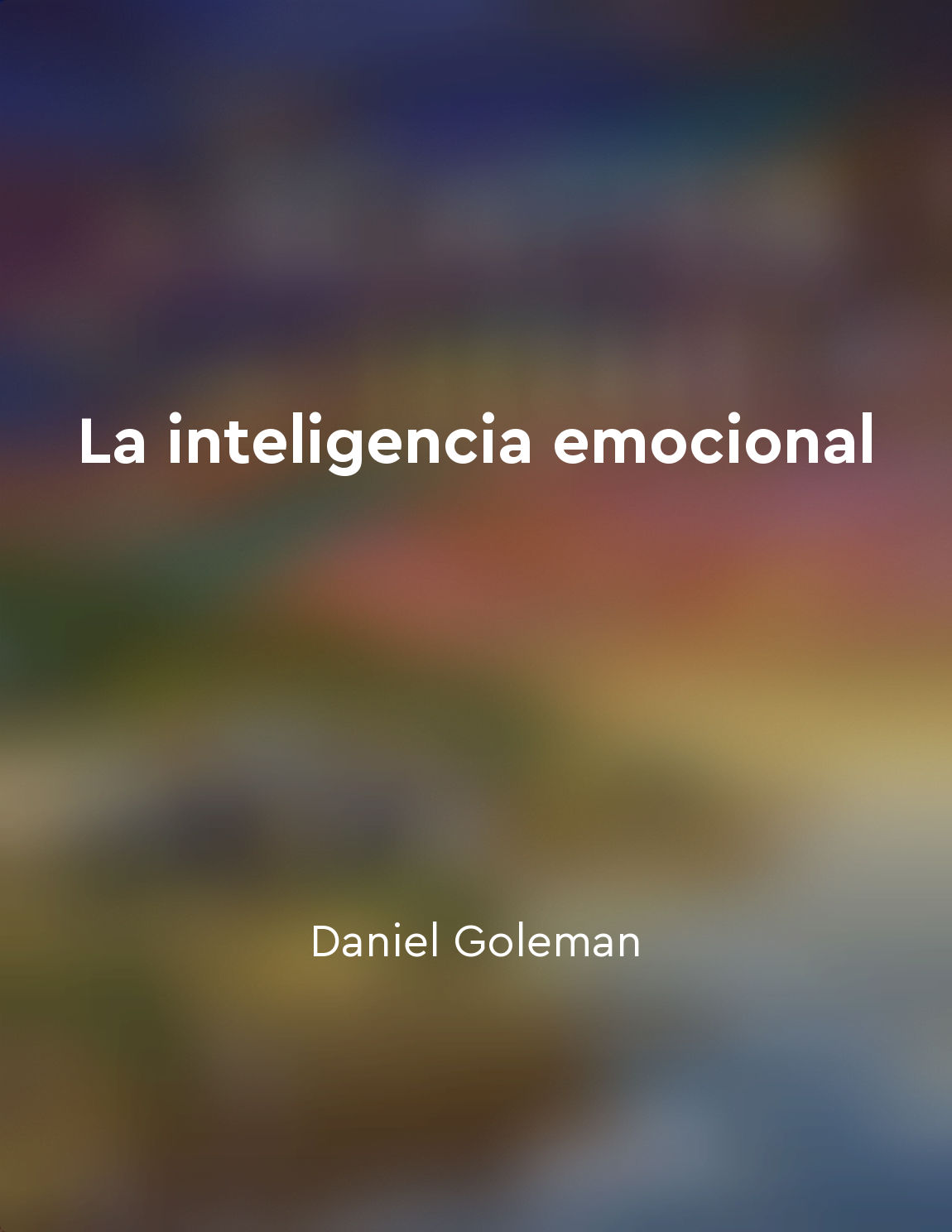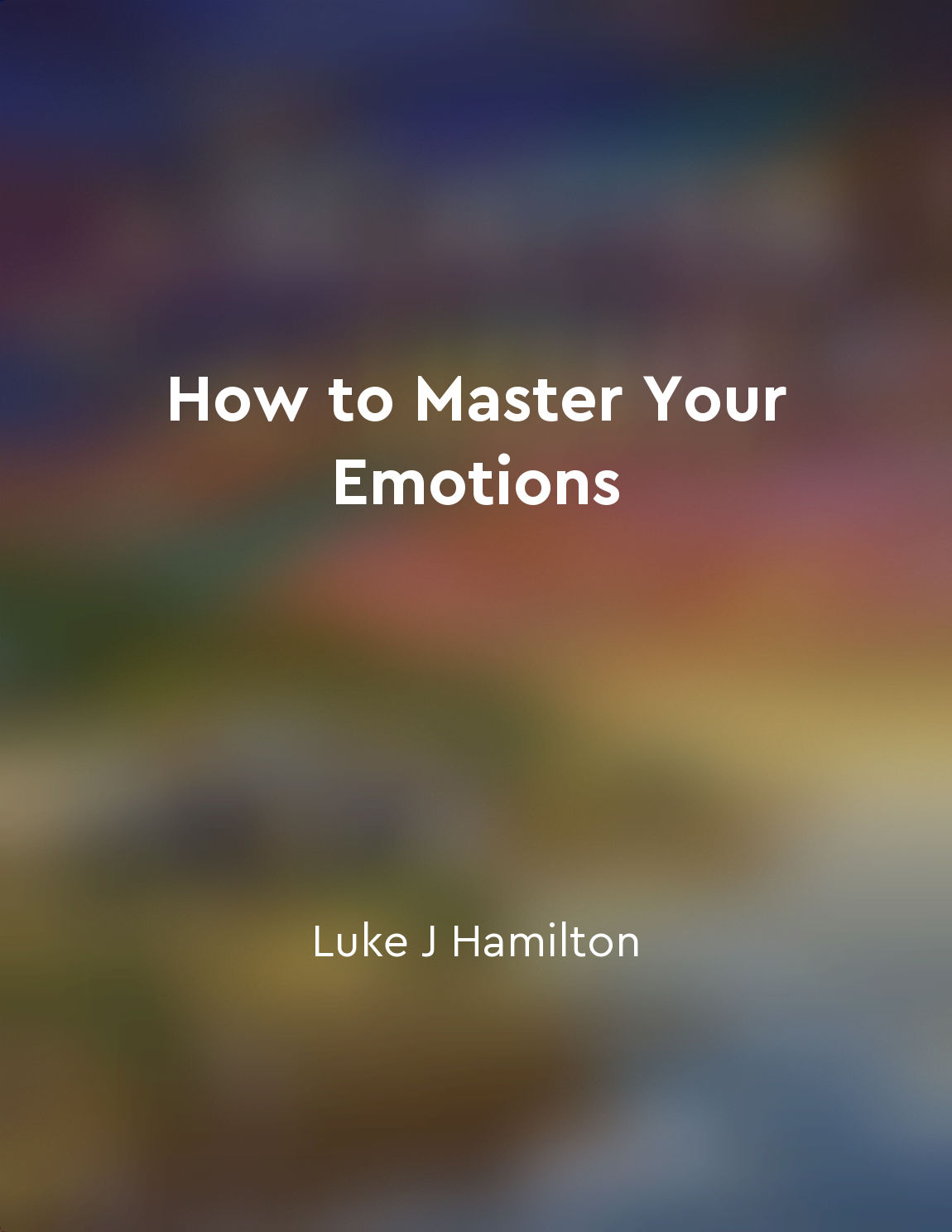The mind is like an elephant and rider, with emotions being the elephant and reason being the rider from "summary" of The Happiness Hypothesis by Jonathan Haidt
Imagine your mind as a rider sitting atop an elephant. The rider represents your conscious reasoning and decision-making abilities, while the elephant symbolizes your emotions and intuitions. The rider is small and limited in strength, while the elephant is massive and powerful. Despite its size, the rider believes it is in control, guiding the elephant along a path. However, the reality is that the elephant's desires and impulses often dictate the direction, with the rider merely rationalizing and justifying the elephant's actions after the fact. The elephant, driven by emotions, can easily overpower the rider's attempts to steer it in a different direction. When faced with a stressful or threatening situation, the elephant's instincts kick in, leading to impulsive reactions that may not align with the rider's rational goals. The rider may try to rein in the elephant, but ultimately, it is the elephant's strength and emotional responses that determine the course of action. In moments of emotional turmoil, the rider struggles to maintain control, as the elephant's power overwhelms reason. The rider may offer logical explanations or justifications for the elephant's behavior, but these are often post-hoc rationalizations rather than true drivers of decision-making. The elephant's instincts and emotions take precedence, shaping the overall trajectory of thought and behavior. While the rider can provide guidance and direction to some extent, it is essential to acknowledge the elephant's influence and power within the mind. By understanding this dynamic between reason and emotion, individuals can strive for greater self-awareness and emotional intelligence. Rather than viewing the mind as a unified entity under conscious control, recognizing the interplay between the rider and elephant can lead to a more nuanced understanding of human behavior and decision-making processes.Similar Posts

Cultivate a sense of purpose for fulfillment
A sense of purpose is a powerful force that can drive us towards fulfillment in life. When we have a clear understanding of why...
The connection between sports and American identity
Sports are an intrinsic part of American identity. They are not just games; they are a reflection of who we are as a nation. Wh...
Human instincts are not fixed or unchangeable
The idea that human instincts are not fixed or unchangeable may come as a surprise to many. After all, instincts are often thou...
The benefits of seeking feedback to improve our decisions
Seeking feedback is a crucial aspect of making better decisions. It allows us to gain valuable insights from others that we may...
EQ is more important than IQ in many situations
In the quest for success, the importance of emotional intelligence cannot be overstated. While traditional measures of intellig...
Moral judgments are largely intuitive
Moral judgments, as I argue, arise from our intuitions rather than from a process of rational deliberation. When faced with a m...
Seek feedback and constructive criticism to improve thinking
It is crucial to seek feedback and constructive criticism as a means to enhance our thinking abilities. By exposing ourselves t...

Selfawareness is critical in poker
Understanding oneself is a fundamental skill in the game of poker. It goes beyond just knowing the rules and strategies; it req...

Emotional intelligence can be developed and improved
Emotional intelligence, the ability to recognize, understand, and manage our own emotions as well as those of others, is not a ...

Take time to reflect on your emotions to gain insight into their triggers
Reflecting on your emotions is a crucial step in understanding why you feel the way you do. It involves taking the time to paus...

